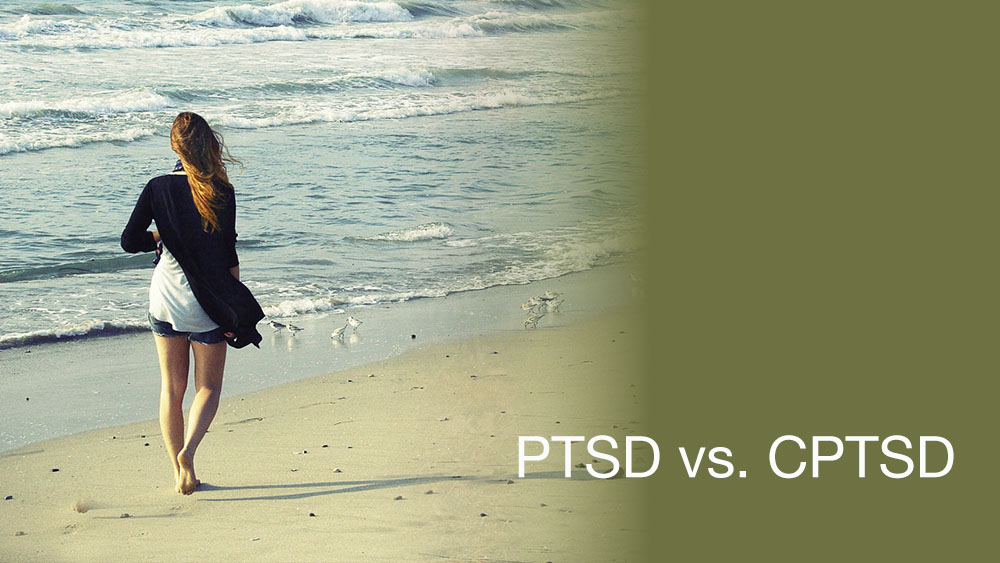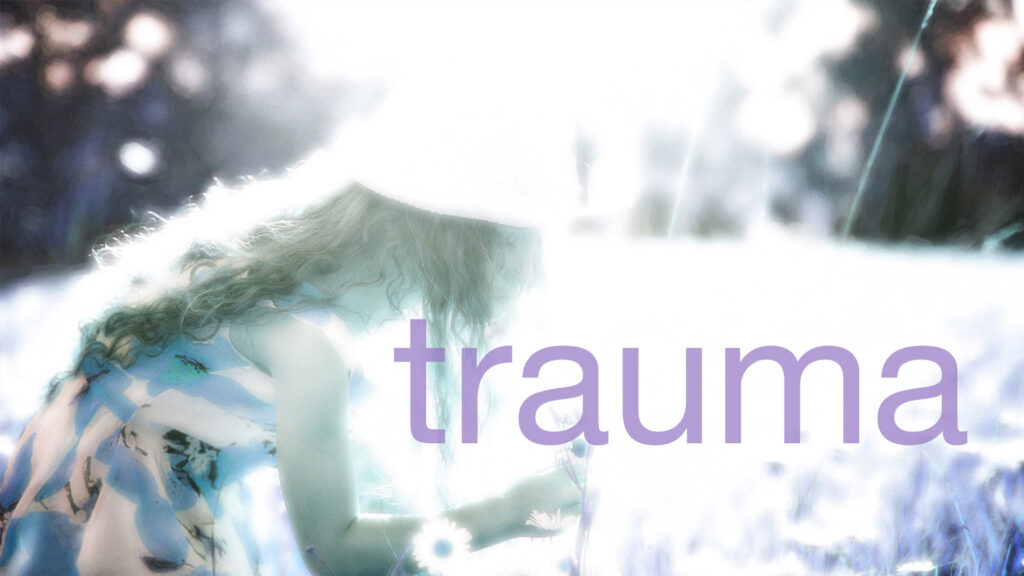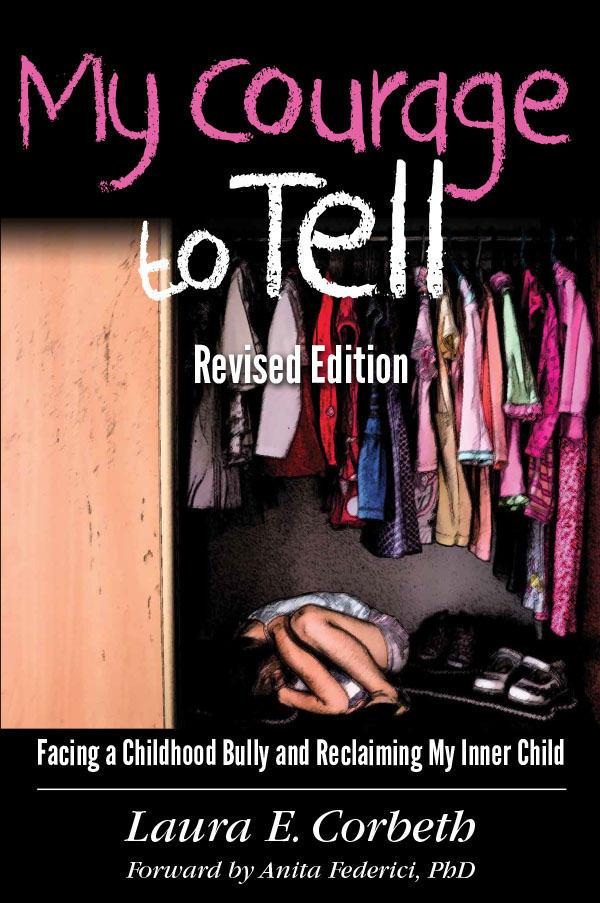
“Often with PTSD there is the traumatic event; perhaps someone was in the war or had a car accident,” she explained. “With Complex PTSD, it’s more when we see psychological abuse. It’s this accumulation over time of feeling threatened.”
—My Courage to Tell
…the symptoms of PTSD do not really seem to completely describe the psychological harm, emotional problems, and changes in how people view themselves and the world following chronic traumatic exposure. Therefore, some mental health professionals believe that we should distinguish between the type of PTSD that develops from chronic, long-lasting traumatic events, and the type of PTSD that results from short-lived events.
—Verywellmind.com
PTSD
PTSD used to be an anxiety disorder. It is now a trauma and stress-related disorder because it is more than anxiety. People may have emotions like shame or guilt. Anger perhaps.
PTSD is an emotional reaction to a very traumatic event. It could have been something that caused physical harm to you. It may have been sexual assault/rape. You may have been in a car accident, plane crash, or witnessed something violent.
These are life-threatening situations that have caused trauma.
Not everyone has PTSD from a traumatic event. We are all different. We all react differently to events. “Trauma is not what happens to you; trauma is what happens inside of you, as a result of what happens to you,” Dr. Gabor Maté, author of The Wounded Healer says.
What are the symptoms? Some are: having flashbacks or nightmares; avoidance of something that may remind you of the event (will never get into a car if you were in a car accident that caused trauma); negative moods (something bad is going to happen); being hyper-reactive (anger outbursts); and, insomnia and sleep disturbances to mention a few.
PTSD changes brain structure. Brain studies show how the Amygdala and Hippocampus are different than people who do not have PTSD.

Complex post-traumatic stress disorder (C-PTSD; also known as complex trauma disorder)[1] is a psychological disorder that can develop in response to prolonged, repeated experience of interpersonal trauma in a context in which the individual has little or no chance of escape.
Complex PTSD
You will not get a diagnosis from a psychologist for C-PTSD. It is not an official diagnosis in the Diagnostic and Statistical Manual of Mental Disorders (DSM-5).
It is associated with repetitive trauma—repeated chronic trauma over time. You may be in a situation where you cannot escape. Usually, it starts in childhood from physical, emotional and/or sexual abuse. It can also develop from childhood neglect as well. I say usually because other events can cause C-PTSD, such as being in an abusive relationship or prisoners of war.
In terms of childhood, trauma is happening in our critical developmental years—the years that shape who we are.
What happens if you have C-PTSD? Similar to symptoms mentioned above with PTSD, you may have personality difficulties—meaning that you may have some trouble with relationships. Emotional regulation is difficult (I have been hypersensitive my whole life). There is sometimes dissociation (you have forgotten the trauma) and you are disconnected from yourself and your world. Self-worth is low. Self-esteem is low. You may believe that you are not good enough. There is a distortion of viewing the perpetrator, ie giving them power, or being preoccupied with them or there could be a preoccupation with revenge.
According to healthyplace.com, 92% of people with C-PTSD also meet the criteria for a PTSD diagnosis. This means that those with C-PTSD experience the usual physical and emotional effects of PTSD like:
- re-experiencing of the traumatic event (flashbacks)
- nightmares
- increased response when startled
- avoidance of things that remind the person of the trauma
- irritability or angry outbursts
—healthyplace.com
A person with C-PTSD can develop depression and anxiety. If that is the case, we must remember underneath the diagnosis may be a very broken inner child. Because we are programmed to not trust because of the trauma in childhood, we may have a lingering feeling of being lost. You may be irritable. There may be sleeping problems too.

My Courage to Tell
Read the Prologue, Forward, Chapter 1, Chapter 2 in a Flipbook format.
Treatment:
Depression and anxiety may be treated with medication. (Your health-care professional needs to make these determinations.)
For treating the root cause from childhood, there are different treatments psychologists/therapists suggest. Some suggest EMDR — eye movement desensitization reprocessing.
There is also exposure therapy, CBT, DBT, brain remapping, grounding techniques (paying attention to your surroundings and knowing you are safe now.) I always focus on my toes and my feet.
Journaling and yoga also are beneficial.
For me, journaling has been instrumental as well as exposure therapy. My psychologist encouraged me to write my book. It was very healing for me since I buried a lot of what happened in my childhood. It was not an easy thing for me to do because I was threatened as a child I’d be hurt if I EVER told. It is important to bring awareness to the damage of psychological abuse. With the many messages I receive from people, I believe there is a broader awareness of how damaging it is (bullying as well).
People may be given a diagnosis of Borderline Personality Disorder instead of Complex PTSD as it is sometimes misdiagnosed by doctors. Dr. Judith Herman of Harvard University, a C-PTSD expert, states that:
. . . recovery from Complex PTSD requires restoration of control and power for the traumatized person. Survivors can become empowered by healing relationships which create safety, allow for remembrance and mourning, and promote reconnection with everyday life.—HealthyPlace.com
CPTSD is challenging, but recovery is possible. As Dr. Peter Levine says, “Trauma does not have to be a life sentence.”
I hope that this has been helpful.
Peace.
References:
1) https://www.verywellmind.com/what-is-complex-ptsd-2797491
2) https://www.medicalnewstoday.com/articles/322886.php
3) healthyplace.com/ptsd-and-stress-disorders/

Thank you Laura, I love this.